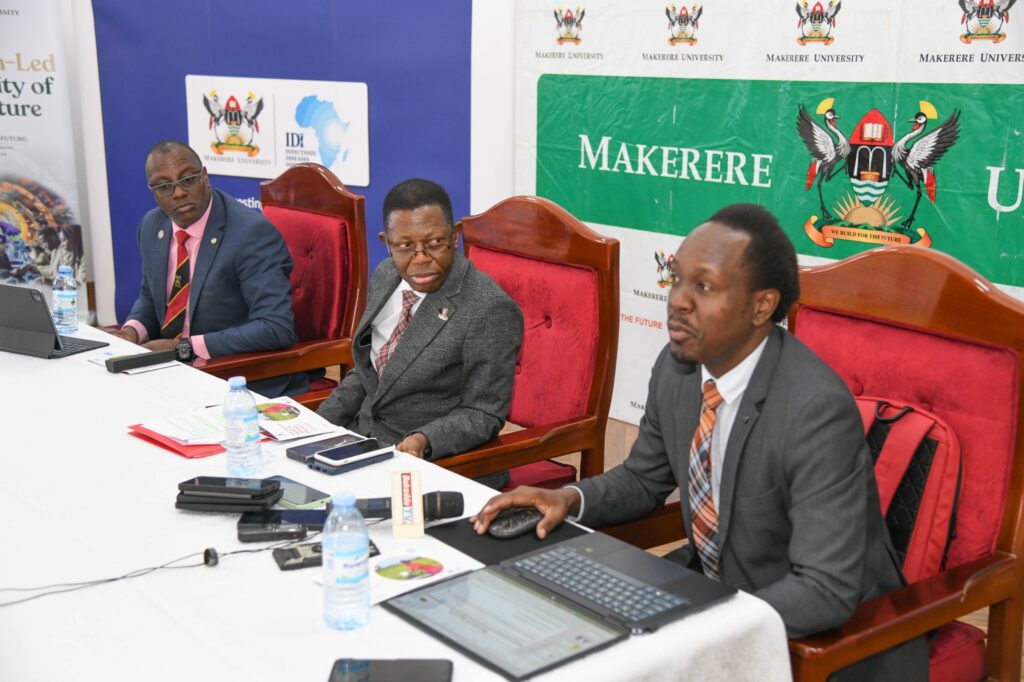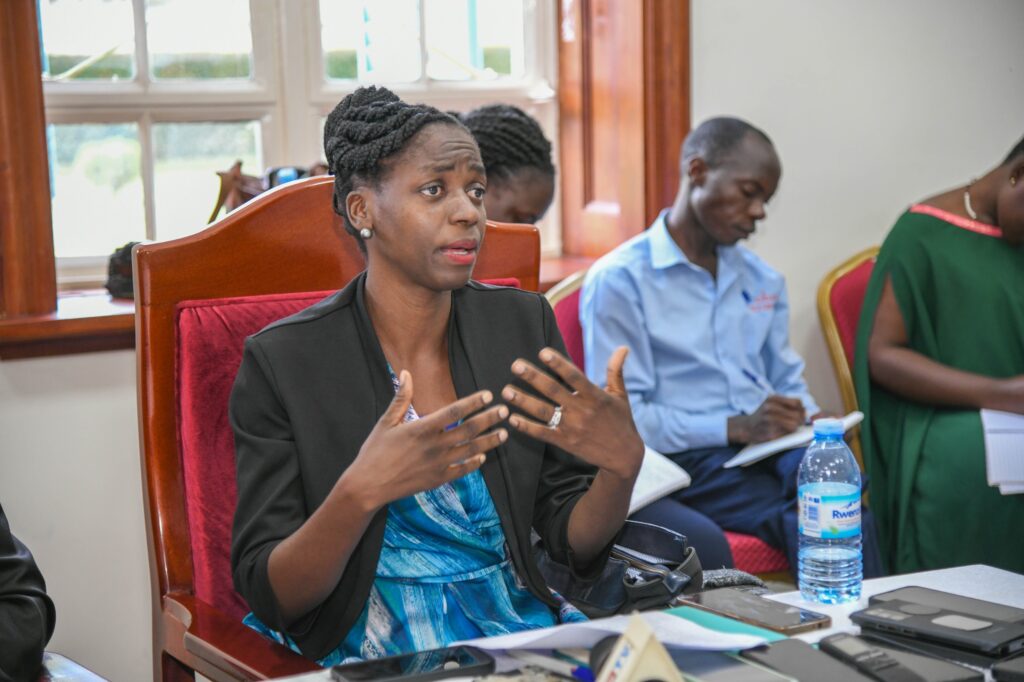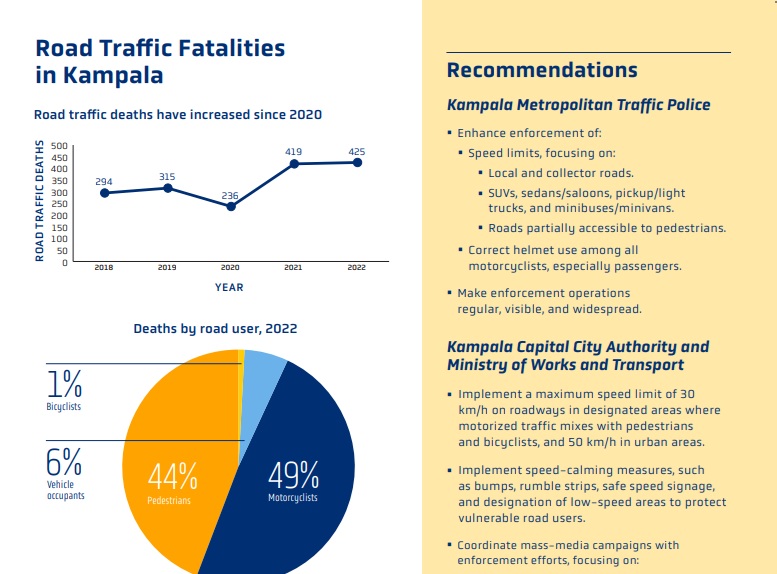Makerere University’s School of Public Health today presented critical findings from the Kampala Status Summary 2023 on Road Safety Risk Factors, part of a wider Bloomberg Philanthropies Initiative for Global Road Safety.
The groundbreaking study exposes alarming levels of speeding and poor helmet use in Kampala, painting a stark picture of the human behaviours and systemic gaps fueling Uganda’s road traffic injuries and fatalities.
At a press conference held in the Main Building (Ivory Tower) Council Room, the Acting Vice Chancellor, Prof. Buyinza Mukadasi, emphasised the urgency of turning research insights into coordinated action. “This is not just a personal issue—it’s everyone’s business now,” Prof. Mukadasi said, calling on lawyers, educators, parents, and the public to work together for safer roads.
Road Safety: A Growing Crisis
Dr Frederick Oporia, Head of Makerere’s Trauma, Injury, and Disability Unit (TRIAD), detailed the scope of the research and the critical risk factors, citing speeding and helmet use.

“Over 60% of vehicles in Kampala exceed recommended speed limits. Evidence shows that every 1 km/h increase in speed raises the risk of death by 5%. Speeding contributes to approximately 80% of Uganda’s 10+ daily road fatalities,” he noted.
He said that helmet compliance among boda boda riders remains worryingly low, with less than 10% of passengers wearing helmets, even in organised ride-share services. Dr. Oporia warned, “A helmet costs less than the cheapest coffin,” underscoring the preventable nature of these deaths.
Unsafe Roads, Unsafe People
The study also highlights Uganda’s road infrastructure as a major contributor to the crisis. Roads in Kampala prioritise vehicle movement over pedestrian safety, putting vulnerable road users—children, pedestrians, and boda boda riders—at extreme risk.
Dr Oporia appealed for urgent collaboration with urban planners and engineers to redesign roads that prioritise people, not just cars.
An Unsustainable Human and Economic Toll
In a follow-up presentation, Dr Jimmy Osuret, Injury Epidemiologist, revealed the scale of the crisis: in 2024, Uganda recorded 6,666 road traffic deaths—an average of 14 lives lost daily.

“Serious injuries, numbering over 13,000 annually, cost families and the government millions in medical expenses. Uganda’s transport system remains largely unregulated, chaotic, and unsafe, with a glaring lack of speed governors on public vehicles and poor enforcement of traffic laws,” he noted.
Dr Osuret questioned the country’s priorities, highlighting how less deadly health crises, like COVID-19, garnered massive government response, while road safety remains underfunded and neglected.
Beyond Blame: A Safe Systems Approach
Dr Esther Bayiga Zziwa, Road Safety Researcher and Injury Epidemiologist stressed that road traffic crashes are predictable and preventable — not mere “accidents.”
She advocated for the Safe Systems Approach, which accepts that human error is inevitable, but fatal outcomes are not. This approach calls for a systemic design that protects users even when mistakes happen.
“We need to revise Uganda’s high legal alcohol limits for drivers, ban unsafe vehicle imports lacking modern safety features, build roads designed with pedestrians and cyclists in mind, and expand prioritising mass public transit,” she noted.

Dr Bayiga Zziwa highlighted Uganda’s pedestrianisation success on Namirembe Road as an example of proactive design saving lives.
The Way Forward: A National Call to Action
The researchers collectively urged the government, urban planners, law enforcement, civil society, and the media to intensify coordinated efforts: implement stricter speed and helmet laws with effective enforcement, design safer urban infrastructure, regulate vehicle safety standards, expand emergency medical response capabilities, and prioritize mass transit solutions to reduce chaotic, unsafe transport modes.
Prof. Mukadasi closed the conference by posing a challenge: “What’s your plan? How do we move forward together? This is a call for shared responsibility—from all sectors and every citizen.”
The Trauma, Injury, and Disability (TRIAD) Unit at Makerere University is the continent’s only dedicated injury research unit and is transitioning to a full-fledged centre. TRIAD is seeking designation as a WHO Collaborating Centre for Injury Prevention—a first in Africa.










